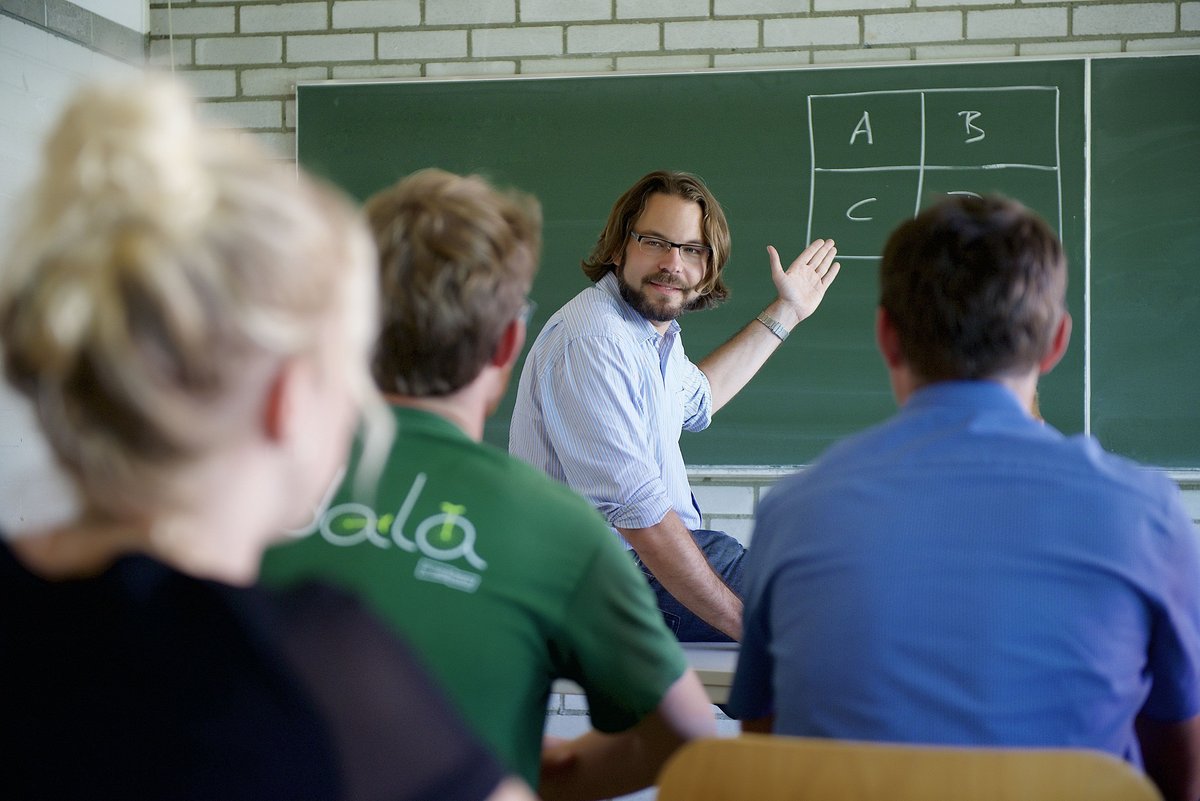
Code of Practice for Effective Teaching
based on the senate resolution of 28 May 2014 and 10 February 2021 (update)
At the University of Konstanz, we strive to provide our members the best possible conditions for study, teaching and research. Our Code of Practice for Effective Teaching expresses our understanding of teaching and studying. In accordance with the mission statement of the University of Konstanz, the Code of Practice defines the goals and guiding principles which apply to all study programmes and are based on the guidelines of the Qualifications Framework for German Higher Education, the accreditation provision "Studienakkreditierungsverordnung" Baden-Württemberg and the regulations for the accreditation of study programmes.
Furthermore, the Code of Practice explains what we at the University of Konstanz consider to be effective teaching practices. It provides a summary of effective practices for teaching and study that are implemented and supported by our teaching staff, students, departments, the Rectorate and the academic support services of the University of Konstanz.
The Code of Practice also includes the quality criteria that are used to regularly evaluate and improve the study programmes. It provides orientation for defining the qualification goals of study programmes and their modules.
At our campus university and dynamic educational institution, innovations are actively integrated into our teaching culture where this is beneficial to learning goals. We promote innovative teaching methods and strategies such as transfer formats or virtual classrooms and support lecturers in developing their teaching further.

Essential goals of effective teaching
Students at the University of Konstanz are trained to be highly-qualified, creative and responsible personalities for the knowledge society of the 21st century, who have a broad educational foundation as well as excellent subject-specific and methodological knowledge, and are able to critically deal with the current state of knowledge as well as its expansion. The goals of teaching are to impart disciplinary competencies and transferable skills that are important for academic work and for scientifically based and responsible action in practical applications. These goals include:
With a bachelor's degree, our graduates are able to demonstrate a broad and integrated knowledge of academic fundamentals in their respective fields of study. They have a critical understanding of the most important theories, principles and methods in their field of study and are able to enhance their knowledge independently. Their knowledge corresponds to the latest specialist literature and, at least in some aspects, links to the most recent findings in their field of study.
With a master's degree, our graduates have significantly deepened this up-to-date knowledge. They are also able to define and interpret the special features, limits, terminologies and research positions in their field of study. Master programme graduates are able to apply the critical judgement and complex problem solving abilities acquired during the bachelor's programme, in their field of study and beyond, even in situations when information is incomplete or limited.
Studying and teaching at the University of Konstanz aims at promoting the personal development of our students. With their knowledge and abilities, our graduates are able to reflect on the social and ethical aspects of their actions and to take on social responsibility. They can communicate their findings and the information, theories, and motivations behind them in different contexts in a clear and straightforward manner.

The teaching profile of the University of Konstanz
A crucial component of effective teaching practices at the University of Konstanz is a lively teaching and learning culture that respects the freedom of academic teaching, provides many opportunities for designing teaching and learning processes, and sets high standards for the expertise, commitment and personal responsibility of all participants.
At the University of Konstanz, we are convinced that this desired qualifications profile for our students can be best achieved through research-oriented teaching. For us, research-oriented teaching means including the newest research findings in teaching and introducing our students to innovative scientific methods as early as possible.
In Konstanz, teaching lays a broad and basic foundation during the bachelor's programmes, which includes all essential knowledge of a subject as well as the guidelines for good scientific practice. High quality research-oriented education should be achieved through very good methodological knowledge and the early introduction to interdisciplinary collaboration. Methodological knowledge is especially relevant for keeping pace with the ever faster development of knowledge.
Besides a specialized education in a specific subject or field, the development of personal competencies like critical thinking and self-reflection plays a crucial role. This is how the foundations for a potential academic career are laid during university studies. With the understanding that most of the graduates will not work in the academic field, students are also prepared for careers in the private and public sector. During their study programmes, our students have the opportunity to attain interdisciplinary, career-oriented and transferable skills. These complement the students’ subject-specific training and enable them to continue to independently expand their knowledge for the rest of their lives. These interdisciplinary qualifications are taught as part of our study programmes or are made available through elective course options.
For future careers in research, businesses and society, our graduates should be able to assess and apply digital procedures and analytical methods. To do so, they need to understand and assess digital methods both within their specialist area and beyond, and be able to assess their application. We see digitalization as well as handling data and information as a part of our students' education that requires critical reflection. This is why we set up the cross-disciplinary Advanced Data and Information Literacy Track (ADILT). In addition, our university provides a suitable infrastructure, didactic qualification and support for teachers as well as a corresponding legal framework for digitally enhanced teaching formats.
The design of the study programmes is key for good teaching. The study programmes at the University of Konstanz are constantly being evaluated and updated to reflect the continuous development of the research landscape and increase their attractiveness for both German and international students. Many students study abroad as part of their study programme, ranging from a semester abroad to double degree and joint degree programmes organized with international partners. This development is reflected in the increasing number of courses held in foreign languages, especially in master's programmes. Both through the international community on the university campus and through experiences abroad, our university promotes the development of skills in the areas of cultural diversity and sensitive action in the intercultural environments of a globalized working environment.
At the University of Konstanz, we strive to design our curriculum to be responsive to both gender and diversity considerations.
We take the necessary measures to ensure high quality standards for didactics in teaching. We provide the corresponding structures for students to complete their studies in a reasonable time. Our study programmes are managed professionally and we provide targeted advisory and support opportunities for students and teachers.

Safeguarding the quality of effective teaching
The University of Konstanz is committed to ensuring and promoting the continued development of our high-quality teaching. For this reason, those responsible for the study programmes regularly engage in intensive dialogue with their students. At the University of Konstanz, we offer our teaching staff incentives and freedoms for developing their teaching further.
Our systematic quality management and monitoring of study programmes support all parties involved. This way we can ensure that both the standards and criteria for the accreditation of study programmes and the university's own subject-specific quality criteria are met. These quality criteria relate to the following aspects:
- the admissions procedure
- the composition of the student body
- qualification goals
- study conditions
- the feasibility of the study programmes
- the exam system
- academic success and transitions
- the acquisition of knowledge and skills
- success in job and career
